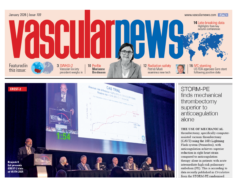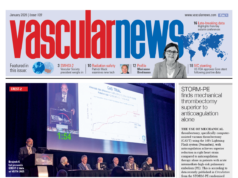Spectranetics announced on 27 June 2011 the first patient enrolment in the EXCITE ISR (Excimer laser randomized controlled study for treatment of femoropopliteal in-stent restenosis) clinical trial. The patient was treated by Prakash Makam at Community Hospital in Munster, Indiana, USA.
The EXCITE ISR clinical trial will enrol up to 353 patients at up to 30 sites in the USA. The trial will study femoropopliteal in-stent restenosis (ISR) and will compare the safety and efficacy of excimer laser atherectomy utilising the Spectranetics’ Turbo-Tandem and Turbo Elite products in conjunction with balloon angioplasty, compared with balloon angioplasty alone in a 2:1 randomised fashion. The primary safety endpoint of the trial will measure major adverse events defined as all-cause death, major target limb amputation or target lesion revascularisation (TLR) through 30 days following the procedure. The primary efficacy endpoint of the trial is freedom from TLR, which will be evaluated through six months following the procedure. These results will be included in a 510k filing with the FDA. The study will employ three separate independent core laboratories and an independent Data Safety and Monitoring Board in order to enhance the credibility and integrity of the study results.
“We are delighted to have initiated the EXCITE trial with the first patient enrolment in the study,” said Tom Rasmussen, vice president, Clinical Affairs. “We are looking forward to the selected sites’ rapid enrolment of patients in order to gather answers to this pressing problem. While there is currently no medical device cleared by the FDA to treat patients with ISR, we hope to continue our history of leadership in delivering solutions to unmet needs for patients suffering from peripheral arterial disease.”
“I am excited to be part of this important milestone by enrolling the first patient in this significant trial,” said Makam. “In-stent restenosis is a growing problem without any approved solutions. With the lack of level one clinical evidence guiding clinical practice for ISR, a positive outcome in this study would benefit the many patients and physicians who are seeking a proven solution to this growing facet of peripheral arterial disease.”
“Congratulations to Dr Makam for enrolling the first patient in this landmark study,” said Eric Dippel, national principal investigator for EXCITE. “There are no previous studies evaluating treatment for femoropopliteal ISR. We are looking forward to the findings of the study, hopefully providing a solution that improves the quality of life for our patients.”












